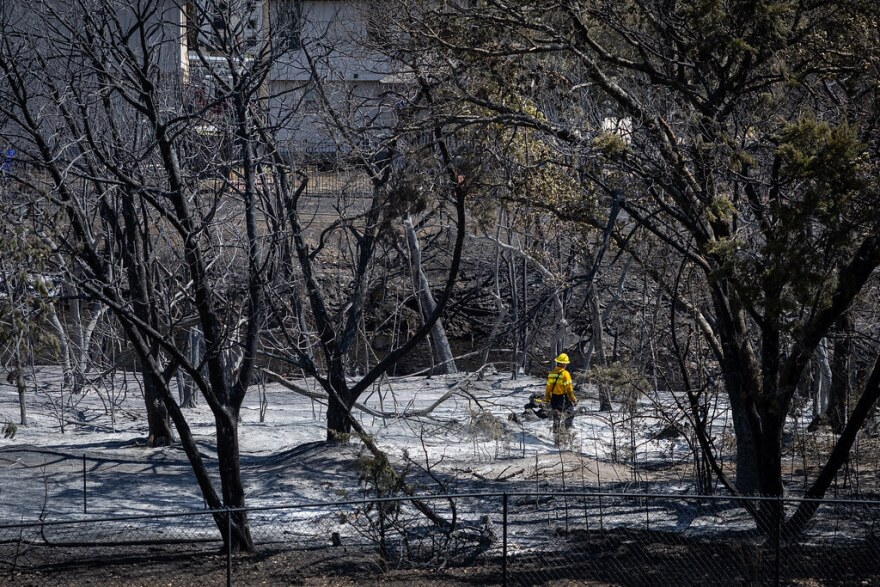Scorching temperatures, dry weather and windy conditions have thrust Texas into level 4 fire preparedness, the second-highest alert issued by climatologists at the Texas A&M Forest Service.
Being at level 4 indicates there is “a very high volume of wildfires, including large fires and fires that are resistant to control,” according to the service. “The fire environment will support increased wildfire activity and a heavy commitment of state and local resources for long durations is likely required.”
As of Wednesday, there were nearly a dozen active wildfires across the state, ranging in size from a few dozen acres to several hundred. They include the 1,400-acre Double Back fire in Johnson County, which was 90% contained; and a 900-acre Craft fire in Jack County, which was 70% contained, and the 400-acre Cedar Top fire in Knox County, which was only 15% contained.
The hazardous conditions have prompted officials in nearly 180 counties to issue burn bans as above-normal temperatures continue to blanket most of the state, including in Harris, Dallas, Travis, Tarrant, El Paso, Hays and Williamson counties.
Adam Turner, a wildland urban interface coordinator with the Texas A & M Forest Service, said flash droughts sweeping across some parts of the state will keep fire-danger levels high through the week. A flash drought is the sudden onset or worsening of a drought.
“We are experiencing … what we are calling a flash drought across all of north and then Central Texas, so almost straight down the 1-35 corridor,” he told Houston Public Media, adding that dry weather is also hitting the Houston area, Southeast Texas and Northeast Texas. “This intense high pressure that we’ve had for the past month has really just critically dried all of our fuel. So, our grass, our trees, our brush is all very dry.”
More than 85% of the state is currently under drought conditions ranging from “abnormally dry” to “exceptional drought” according to the U.S. Drought Monitor. That’s an increase from last week’s 79% but still well below this time last year, when only 1% of the state wasn’t in a drought.
But the extreme heat is counteracting any benefits provided by more moisture.
“The heat that we keep breaking records with is really drying out our vegetation very quickly,” Kari Hines, a program coordinator at the Texas A&M Forest Service, told The Texas Standard. “This week, we know we’re going to have sustained winds in some places of over 20 miles per hour, gusts of even higher. And when you combine that weather with our dry fuels, you really create a condition where firefighters have a harder time being able to safely contain wildfires.”
Hines also told Texas Standard that 90% of fires are caused by human action, including burning trash or debris and equipment use, including vehicles and machinery. Equipment use reportedly caused a 400-acre fire in Hays County earlier this week, which is now about 95% contained.
Be Prepared
As summer continues, officials are encouraging Texans to be prepared in case of an emergency evacuation order related to a wildfire. The Texas Division of Emergency Management said residents should know the five Ps of evacuation: People (also includes pets), Prescriptions, Papers (important documents), Personal needs and Priceless items.
Hines said Texans should also know in advance exit routes, including back exits not commonly used, and heed the warnings from first responders and follow their instructions. It’s also recommended that pets be kept close, and that leashes and carriers be readily available in case of an immediate need to evacuate.
Copyright 2023 KERA. To see more, visit KERA.


